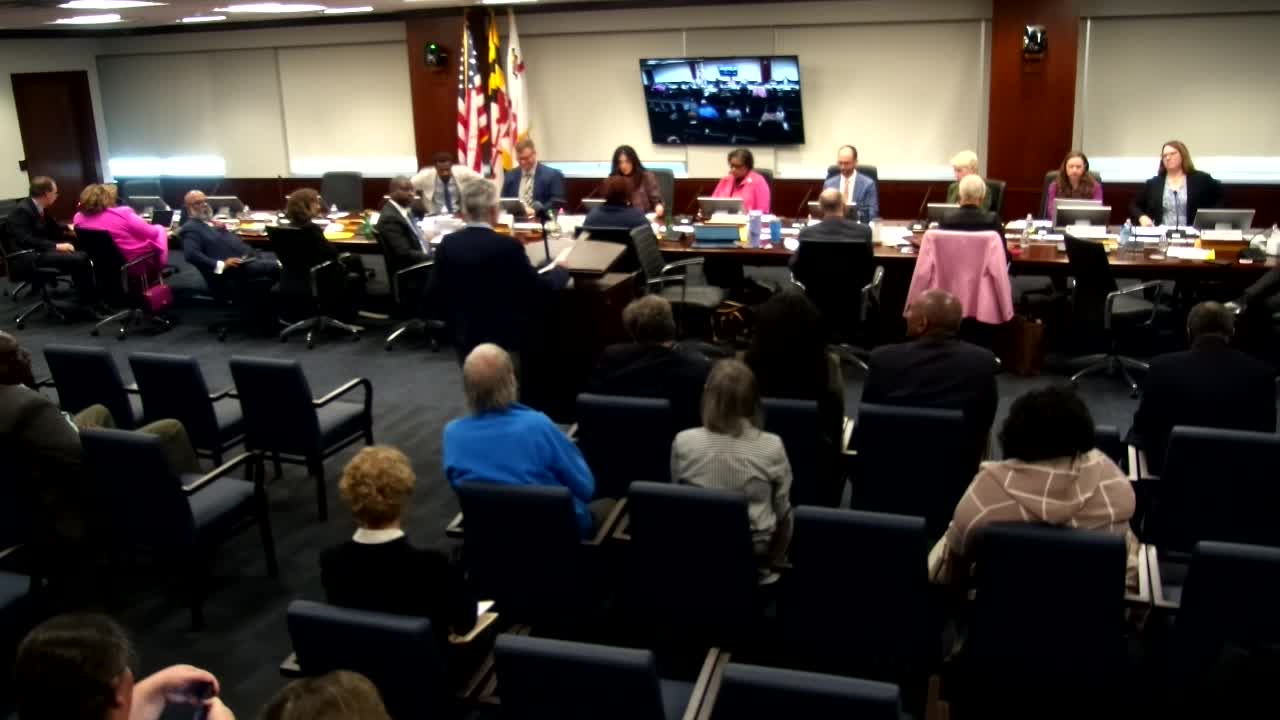County officials and residents push back on Virginia’s Southside Express Lanes; urge transit and bus alternatives
Get AI-powered insights, summaries, and transcripts
Subscribe
Summary
Prince George's County leaders, residents and advocacy groups told MDOT officials they oppose Virginia’s proposed Southside Express Lanes and urged near‑term bus/HOV pilots, commuter incentives, and transit‑oriented development in lieu of highway widening.
Dozens of county leaders and residents urged Maryland Department of Transportation officials on Monday to oppose Virginia's proposed Southside Express Lanes and to prioritize transit and demand‑management alternatives.
"VDOT's plan to address congestion was harmful and would not have solved congestion," said Barbara Soffel, chair of Citizens Against Beltway Expansion, thanking MDOT and county officials for opposing the proposal and asking that Maryland develop alternatives such as pilot bus and HOV lanes, expanded commuter incentives and managed‑lane strategies that favor carpools and buses rather than roadway widening.
Multiple public commenters echoed that approach. "We can't keep on polluting our air and water and destroying our land to build ever more highways," Nicholas Oreck, a Riverdale resident, said while stressing the need to invest in reliable local bus service and reduce wait times. Janet Spengel of the Prince George's County Sierra Club asked MDOT and the county to study near‑term bus and HOV pilots and longer‑term Metro or bus-rapid transit expansions.
Council members and county staff said they welcomed MDOT's collaboration with the county on the TPB action that excluded the Southside project from the regional long-range plan and called for continued regional advocacy. Kevin Steven, the county's deputy chief administrative officer for government infrastructure, thanked MDOT for "the masterful manner of achieving such regional consensus in doing so" and reiterated county priorities for equity, multimodality and transit‑oriented development.
Speakers urged specific near‑term tactics: bus priority lanes on existing right‑of‑way, carpool incentives, and improved commuter services. They also pressed for station-area development along the Purple Line and Blue Line corridors to reduce driving demand.
MDOT and county officials said they will continue coordination with local and regional partners and noted continued interest in alternatives that reduce vehicle‑miles traveled. No new state action or legislation was adopted at the meeting; speakers requested that agencies pursue planning and funding alternatives in the legislative and regional planning processes.
